The JERA Group and JR Chuo Line Community Design Are Building a New Model for Carbon-Free Power: The World’s First Real-World Deployment of “Point 24/7” Aims to Achieve 24/7 Carbon-Free Power at Head Office and Other Facilities2025/07/24
○ JERA Co., Inc. (“JERA”) and JR Chuo Line Community Design Co., Ltd. (“JR Chuo Line Community Design”) will launch a virtual PPA (a mechanism for supplying environmental value1 from a power station to an electricity consumer) to supply JR Chuo Line Community Design, through JERA subsidiary JERA Cross Co., Inc. (“JERA Cross”), with environmental value derived from a JERA-developed solar power plant.
○ Specifically, JERA will conduct hourly matching (matching environmental value with electricity consumption on an hourly basis) at the JR Chuo Line Community Design head office, at the CHUO LINE BEER WORKS beer brewery, and at the CELEO HACHIOJI parking lot.
○ In addition, at the head office (part of a multi-tenant building), a demonstration aimed at achieving 24/7 carbon-free power will be conducted by combining this with Point 24/7 (a system that enables more granular detection and prediction of power demand at the point of supply, something essential for supplying the necessary amount of carbon-free power) offered by JERA Cross. Moreover, this will be the world’s first real-world deployment of Point 24/7.
○ Both parties will contribute to the decarbonization of society through the effective utilization of renewable energy.
1.Project Overview
Environmental value derived from a JERA-owned solar power plant will be supplied, through JERA Cross, to consumption points owned by JR Chuo Line Community Design. Generated electricity will be sold to the market, with environmental value alone made visible through hourly matching with electricity consumption. In addition, JERA Cross’s Point 24/7 technology (patent numbers 7607106 and 7624110) will enable the use of 24/7 carbon-free energy2 in a section of a multi-tenant building without the need to change the existing electricity supply agreement. Moreover, this will be the world’s first real-world deployment of Point 24/7.
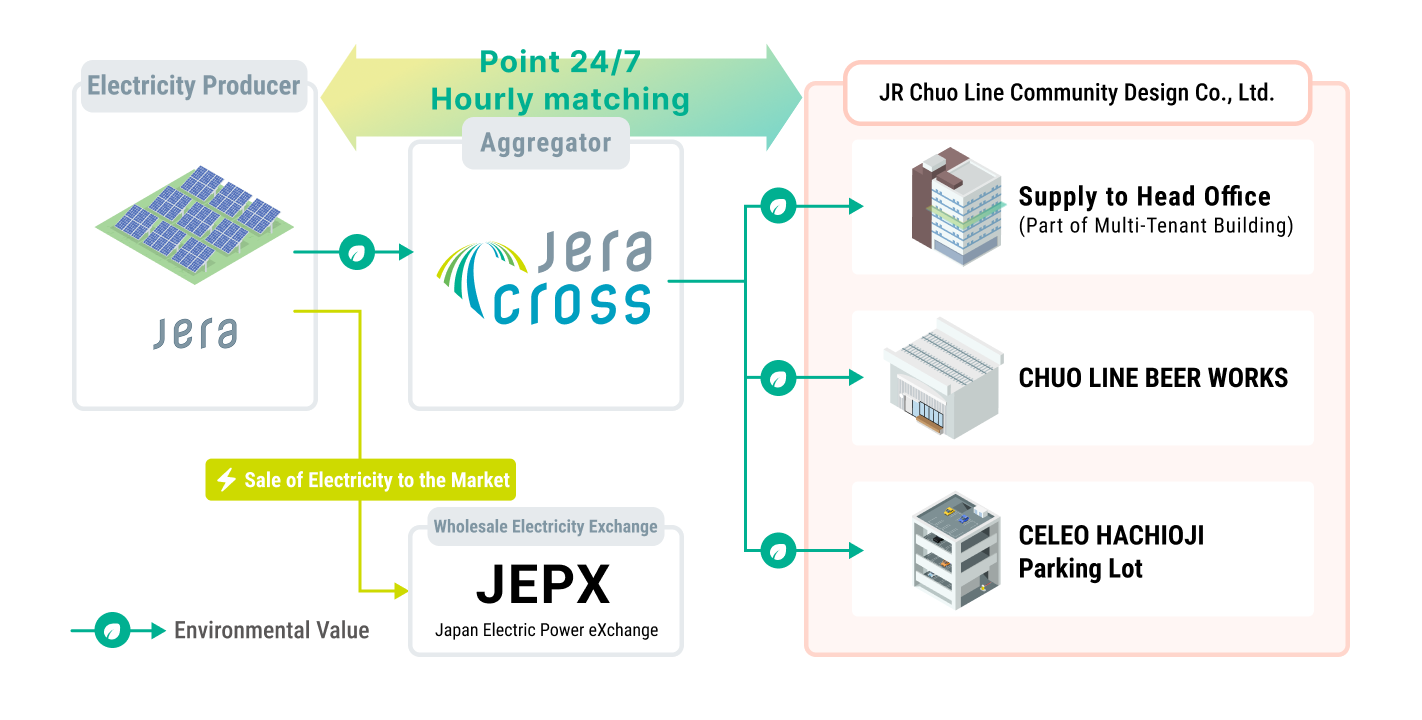
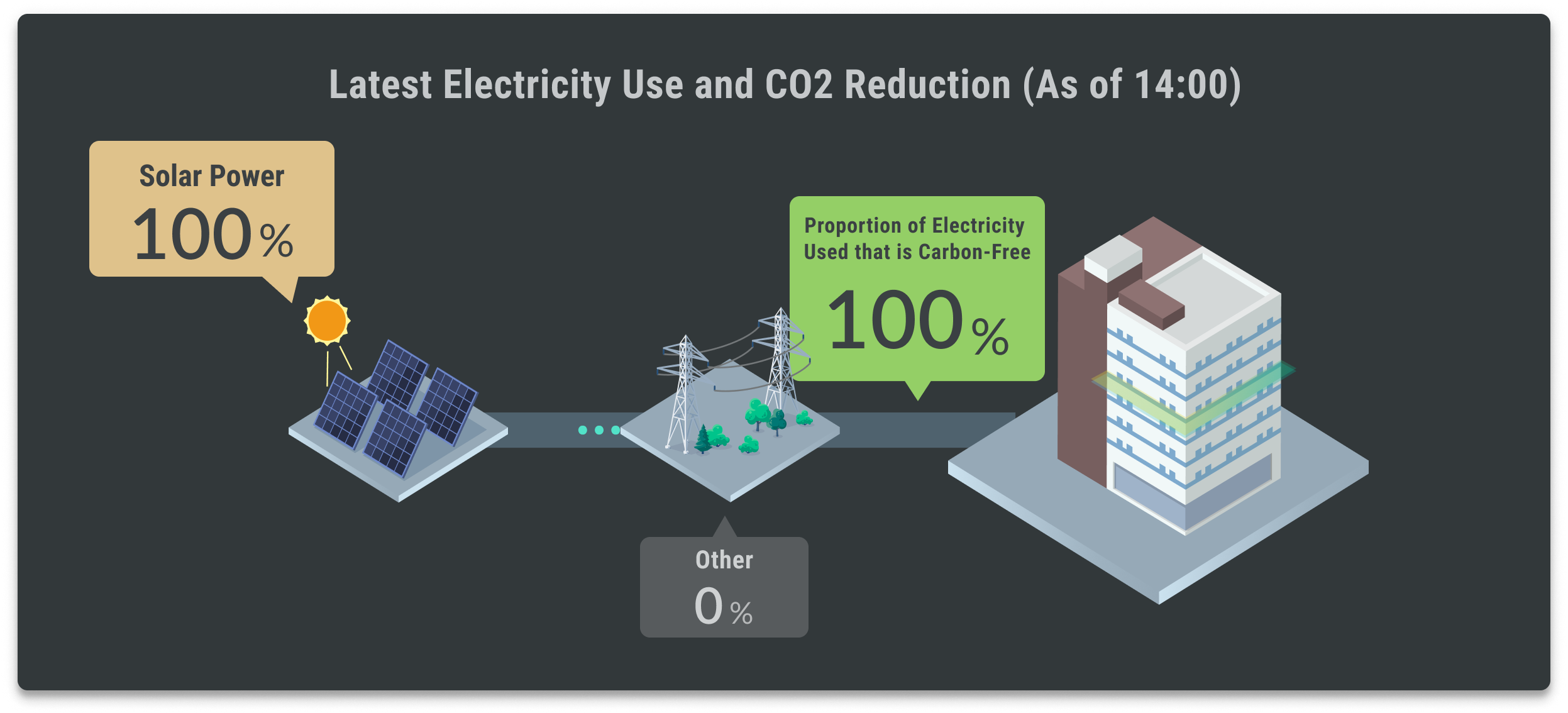
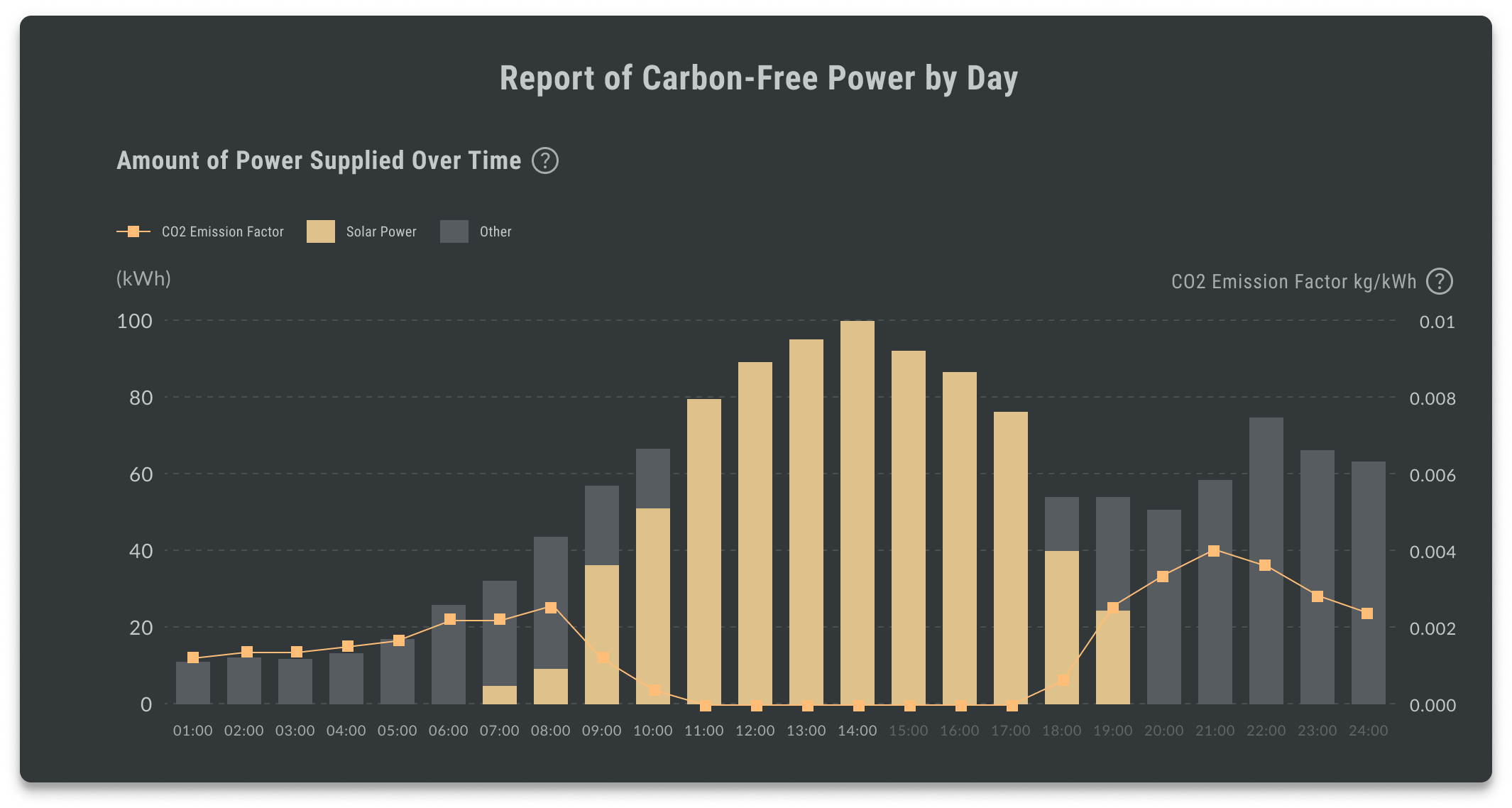
• Start of Supply
1 August 2025
• Supply Destinations
(1) JR Chuo Line Community Design Co., Ltd. Head Office
Location: Koganei Honcho Building 5F, 18-10 Hon-cho 1-chome, Koganei-shi, Tokyo
(2) CHUO LINE BEER WORKS
Location: 3-45 Midori-cho 5-chome, Koganei-shi, Tokyo
(3) CELEO HACHIOJI Kitaguchi Parking Lot 2
Location: 16 Myojin-cho 3-chome, Hachioji-shi, Tokyo
• Source JERA Solar Power Plant
Location: Ibaraki-machi, Higashiibaraki-gun, Ibaraki
Power Generation Capacity: Approx: 50kW
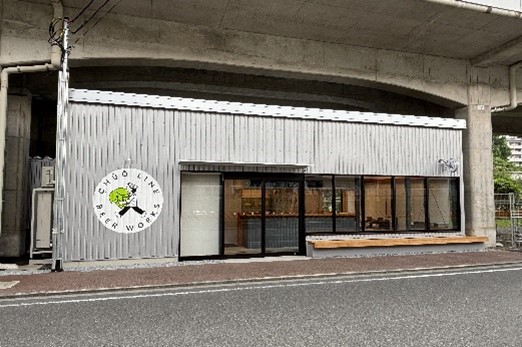
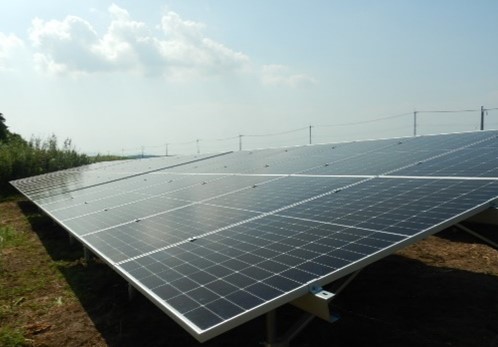
2. Initiatives by Each Company
(1) JERA Group
The JERA Group, under its JERA Zero CO2 Emissions 2050 commitment to aim for net-zero CO2 emissions from its domestic and international operations by 2050, is working both to both expand its use of renewable energy and to develop zero-emissions thermal that emits no CO2 during power generation.
(2) JR Chuo Line Community Design
Under a management vision of “creating a one-of-a-kind way of life,” the company provides services rooted in the local community and cultivates a sustainable, distinctive local appeal. Through initiatives such as switching from the FIT (Feed-in Tariff)3 scheme to the FIP (Feed-in Premium)4 scheme through Japan’s first offsite corporate PPA5 based on wind power generation and the first adoption of renewable energy at a JR East Group commercial facility, it aims to work together with railway users and local residents to achieve the JR East Group’s long-term environmental goals (Zero Carbon Challenge 2050).
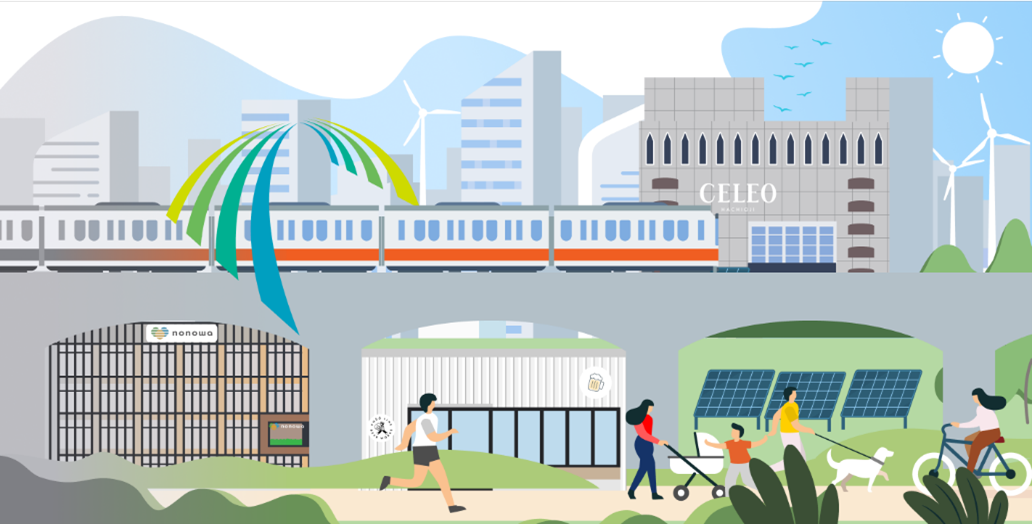
2 “24/7 carbon-free energy” is a name for electricity that emits no CO2 emissions twenty-four hours a day, seven days a week, 365 days a year. In accordance with the Ministry of Economy, Trade, and Industry's "Guidelines for Retail Sales of Electricity," this means that 100% of electricity demand is met with electricity generated through a mix of zero-CO2 emission power sources (renewable energy generation facilities and hydrogen power generation facilities) in combination with the environmental value derived from the use of non-fossil certificates; it does not mean that no CO2 is emitted across the fuel lifecycle including production and transportation.
3 A scheme that requires electricity retailers to purchase power generated from renewable energy sources at a price established by the government for a specified period.
4 A scheme designed to promote the spread of renewable energy by providing power producers with a fixed subsidy (premium) above the price at which they sell electricity, thereby incentivizing their investment.
5 A renewable energy-related power purchase agreement between a power producer or retail electricity provider and an electricity consumer in which the power generation facilities are located offsite (separate from the consumer’s facilities).

